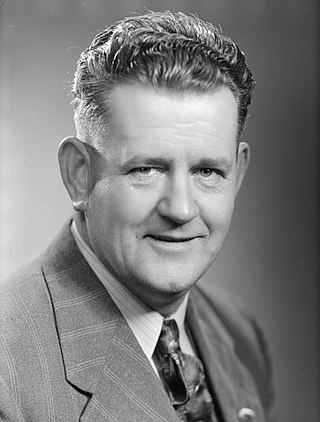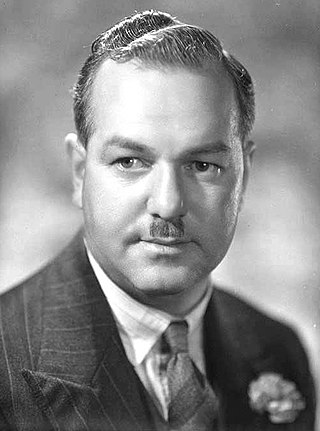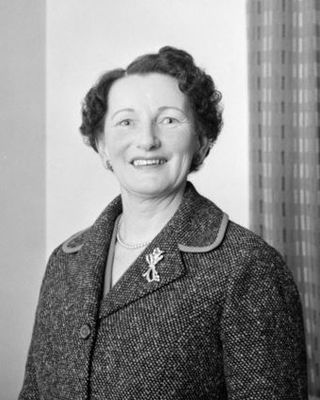| ||||||||||||||||
| Turnout | 13,749 (63.48%) | |||||||||||||||
|---|---|---|---|---|---|---|---|---|---|---|---|---|---|---|---|---|
| ||||||||||||||||
| ||||||||||||||||
The Onehunga by-election 1953 was a by-election held in the Onehunga electorate in Auckland during the term of the 30th New Zealand Parliament, on 19 December 1953. The by-election was won by Hugh Watt of the Labour Party.
| ||||||||||||||||
| Turnout | 13,749 (63.48%) | |||||||||||||||
|---|---|---|---|---|---|---|---|---|---|---|---|---|---|---|---|---|
| ||||||||||||||||
| ||||||||||||||||
The Onehunga by-election 1953 was a by-election held in the Onehunga electorate in Auckland during the term of the 30th New Zealand Parliament, on 19 December 1953. The by-election was won by Hugh Watt of the Labour Party.
The by-election was caused by the death of incumbent MP Arthur Osborne of the Labour Party on 15 November 1953. [1] In early November 1953 Osborne announced that he was not seeking re-election and would retire at the 1954 general election due to ill health. As a result, Labour had already begun preparations to replace him in the electorate at the time of Osborne's death. [2]
There were two nominations for the Labour Party nomination: [3]
The chairman of the Auckland Labour Representation Committee, Richard French "Dick" Barter, was also speculated as a candidate but he did not seek the nomination. [4] The Labour Party selected Watt as their candidate at a selection meeting on 30 November. [5] He had stood unsuccessfully for Labour in Remuera in 1949 election and in Parnell in 1951 election. [6] A month earlier he had been elected to the Auckland Harbour Board for the Onehunga, Newmarket and combined district. [7]
Leonard George Bradley was selected as the National Party candidate. Bradley had contested Onehunga in the previous general election in 1951 against Osborne where he slightly increased National's share of the vote. At the 1949 election he had stood unsuccessfully for National in Auckland Central. [8]
The following table gives the election results:
| Party | Candidate | Votes | % | ±% | |
|---|---|---|---|---|---|
| Labour | Hugh Watt | 6,868 | 66.99 | ||
| National | Leonard Bradley | 3,385 | 33.01 | −10.01 | |
| Informal votes | 13 | 0.13 | |||
| Majority | 3,483 | 33.97 | |||
| Turnout | 13,749 | 63.48 | −23.51 | ||
| Registered electors | 16,171 | ||||
| Labour hold | Swing | ||||
Watt represented the electorate until he retired at the 1975 election. [10] Bradley stood for National in Otahuhu in 1954 election and Waitakere in 1957 election, but was unsuccessful.

The 1954 New Zealand general election was a nationwide vote to determine the shape of the New Zealand Parliament's 31st term. It saw the governing National Party remain in office, but with a slightly reduced majority. It also saw the debut of the new Social Credit Party, which won more than eleven percent of the vote but failed to win a seat.
The Onehunga by-election of 1980 was a by-election for the Onehunga electorate during the 39th New Zealand Parliament. It was prompted by the death of Frank Rogers, a Labour Party MP. It was held on 7 June 1980 and was won by Fred Gerbic, also of the Labour Party.

Hugh Watt was a New Zealand politician who was a Labour member of Parliament and the acting prime minister of New Zealand between 31 August and 6 September 1974, following the death of Prime Minister Norman Kirk. He had been the fifth deputy prime minister of New Zealand since 8 December 1972. Watt later served as high commissioner to the United Kingdom.
Frank Lewis Rogers was a New Zealand politician of the Labour Party.

John "Jock" Skinner Stewart was a New Zealand politician of the Labour Party.
Malcolm Douglas is a former New Zealand politician of the Labour Party. He lives in Karaka south of Auckland.

James Wright Munro was a New Zealand politician of the Labour Party.

Dorothy Catherine Jelicich was a New Zealand politician of the Labour Party. She served one term in the House of Representatives representing the Hamilton West electorate, and was afterwards a city councillor in Hamilton and then Manukau.

Onehunga, initially with the formal name of Town of Onehunga, is a former New Zealand parliamentary electorate in the south of the city of Auckland. Between 1861 and 1881, and between 1938 and 1996, it was represented by seven Members of Parliament. It was a stronghold for the Labour Party.

Arthur George Osborne was a New Zealand politician of the Labour Party.
Grey Lynn is a former New Zealand parliamentary electorate, in the city of Auckland. It existed from 1902 to 1978, and was represented by nine Members of Parliament.
Western Maori was one of New Zealand's four original parliamentary Māori electorates established in 1868, along with Northern Maori, Eastern Maori and Southern Maori. In 1996, with the introduction of MMP, the Maori electorates were updated, and Western Maori was replaced with the Te Tai Hauāuru and Te Puku O Te Whenua electorates.

Michael Connelly was a New Zealand trade unionist, politician of the Labour Party, and a Member of the Legislative Council from 1936 to 1950.

The 1953 North Dunedin by-election was a by-election held during the 30th New Zealand Parliament in the Dunedin electorate of North Dunedin. The by-election occurred following the death of MP Robert Walls and was won by Ethel McMillan.

The Mangere by-election of 1977 was a by-election for the electorate of Mangere on 26 March 1977 during the 38th New Zealand Parliament. The by-election resulted from the resignation of the previous member Colin Moyle after accusations against him in parliament, and he was replaced by David Lange, also of the Labour Party. Apart from Lange, there were seven other candidates in the by-election.

The Northern Maori by-election of 1963 was a by-election for the electorate of Northern Maori on 16 March 1963 during the 33rd New Zealand Parliament. The by-election resulted from the death of the previous member Tapihana Paikea on 7 January 1963. It was held the same day as the Otahuhu by-election.
The Grey Lynn by-election 1963 was a by-election held in the Grey Lynn electorate in Auckland during the term of the 33rd New Zealand Parliament, on 18 May 1963.
The Otahuhu by-election 1963 was a by-election held in the Otahuhu electorate in Auckland during the term of the 33rd New Zealand Parliament, on 16 March 1963.

The Hamilton by-election 1959 was a by-election held in the Hamilton electorate in Hamilton in the Waikato during the term of the 32nd New Zealand Parliament, on 2 May 1959.

The 1936 Manukau by-election was a by-election during the 25th New Zealand Parliament in the Manukau electorate. It was held on Wednesday 30 September 1936. This by-election came about because of the resignation of Bill Jordan upon his appointment to the position of High Commissioner to the UK during the term of the 25th New Zealand Parliament. The by-election in the Manukau electorate was contested by Arthur Osborne for Labour and Frederick Doidge for National, with Osborne winning the election.